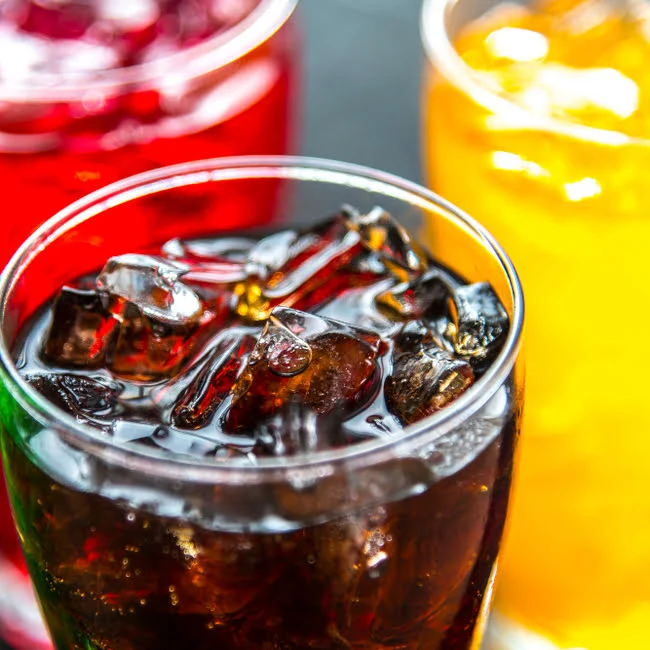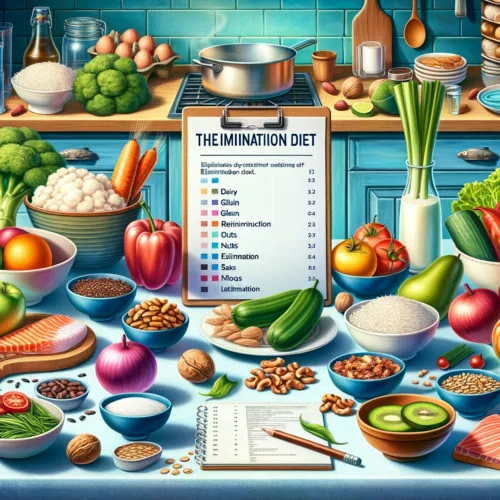Greetings, dear readers! My extensive experience in the field of dietetics and nutrition has inspired me to share information on a topic that affects many of us – the consumption of sweet soda. In this article, I will tell you about the impact of this habit on our health and share valuable advice.
One of the key questions we will explore is the prevalence of consuming sweet soda in our society. Many of us encounter this habit, but few ponder how it affects our overall health. Let’s take a closer look at this issue together.
I want to draw your attention to the health consequences that may be underestimated by many when consuming sweet soda.
Composition and Impact of Soda
A deep dive into the ingredients of carbonated beverages is key to understanding the effects of this popular drink on our health. In this section, we will break down what makes up sweet soda and how each component influences our bodies.
1. Carbonated Water: The foundation of most carbonated beverages. Carbon dioxide gives the drink its characteristic fizz, but it often comes with increased oxygen consumption, which can affect oxygen exchange in the body.
2. Sugar and Corn Syrup: Primary sources of calories and sweetness in soda. Excessive consumption is linked to the risk of diabetes, obesity, and other diseases.
3. Artificial Sweeteners: Often used in “diet” versions of soda. Despite being calorie-free, studies associate them with gastrointestinal issues, metabolic syndrome, and changes in gut microflora.
4. Phosphoric Acid: Imparts a sour taste to soda. Excessive consumption is associated with calcium and phosphorus imbalance, negatively impacting bone and dental health.
5. Flavorings: Used to create specific tastes. However, some may contain chemical additives that trigger allergies and affect the nervous system.
Refrain from the next sip of soda while we discuss the negative consequences of sugar, corn syrup, artificial sweeteners, and phosphoric acid. These components can have an impact on your body that you may not even be aware of.
Physical Consequences
1. Impact on Weight and Metabolism:
Regular consumption of sweet soda can lead to excess weight and disruptions in metabolic processes. Excessive sugar and calories contribute to fat accumulation, especially around the abdomen, increasing the risk of obesity and related conditions.
2. Effects on Organs, Including Heart and Brain:
The effects of sweet soda extend beyond the figure to impact organs. Increased sugar intake is associated with cardiovascular diseases. Moreover, research suggests that sugar excess may affect cognitive functions, increasing the risk of diseases such as Alzheimer’s.
Gastrointestinal Health
1. Association with Gastrointestinal Issues:
Regular consumption of sweet soda may be linked to various gastrointestinal problems. The high sugar and artificial sweetener content can disrupt gut flora, leading to digestive issues, bloating, and changes in stool.
2. Scientific Aspects of Gut Microbiota Impact:
Studies confirm that sweet soda affects the composition and diversity of the gut microbiota. This imbalance can influence the immune system and overall health. Conscious beverage consumption helps support gut health and maintain proper bodily function.
Cardiovascular System Issues
1. Risk for the Cardiovascular System with Soda Consumption:
Unwise consumption of sweet soda can increase the risk of cardiovascular diseases. Excess sugar influences triglyceride levels, contributing to atherosclerosis and elevating the likelihood of thrombus formation.
2. Connection with Blood Pressure and Cholesterol:
Research establishes a link between sweet soda consumption, elevated blood pressure, and cholesterol levels. These factors are key contributors to cardiovascular complications. Guard your heart, control sugar intake, and reduce the risk of cardiovascular complications.
Impact on Mental Health
1. Psychological Aspects of Soda Addiction:
Addiction to sweet soda has both physiological and psychological aspects. Regular consumption creates a habit, and abstaining from the drink may cause irritation and stress. Understanding this psychological aspect aids in better managing habits and forming healthier alternatives.
2. Influence on Mood and Emotional State:
The sugar in soda temporarily elevates blood sugar levels, causing a short-lived feeling of euphoria. However, this quickly shifts to energy crashes and mood swings. Regular sugar level fluctuations can impact emotional well-being.
How to Replace Soda
1. Healthy Alternatives to Satisfy Taste Preferences:
Rethink your taste preferences by exploring healthier alternatives. Sparkling water with fresh fruits, herbs, and berries adds a delightful taste without unnecessary calories. Green tea or natural juices can also be excellent choices for those aiming to avoid soda.
2. Maintaining Hydration While Giving Up Carbonated Drinks:
One key aspect of giving up soda is maintaining hydration. Water is an excellent alternative, providing the body with moisture without extra additives. Add lemon, cucumber, or mint leaves to give water an interesting flavor and make the drinking process even more enjoyable.
Don’t hesitate to experiment with different options, finding healthy and tasty substitutes for soda. Your body will thank you for this choice!
Practical Steps
1. How to Reduce Soda Consumption in Daily Life:
Start by being aware of your soda consumption. Gradually decrease the amount of soda you drink, replacing it with healthy beverages. Create a schedule for yourself, specifying times for drinking water or other alternatives. Gradual reduction will help you overcome the habit without stress.
2. Impact of Giving Up Soda on the Body:
Monitor changes in your body after giving up soda. Pay attention to improvements in your health, such as a more stable energy level, better digestion, and potential weight loss. These positive changes will serve as motivation for maintaining a new healthy lifestyle in the long run.
Conclusion
Summing up daily soda consumption, it’s crucial to realize that these drinks can have a negative impact on various aspects of your health. From weight and metabolism to gastrointestinal and cardiovascular health, soda can pose a risk. Making conscious decisions about your diet and choosing alternatives that support your overall well-being is essential. Caring for your health begins with simple yet significant changes in dietary habits, and giving up soda can be the first step toward a healthier lifestyle.















